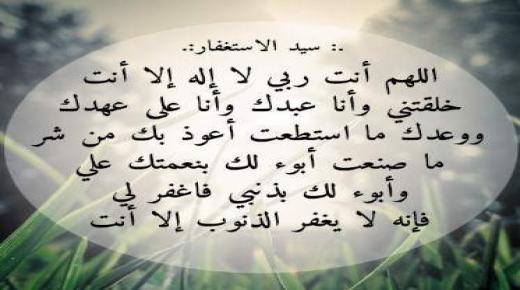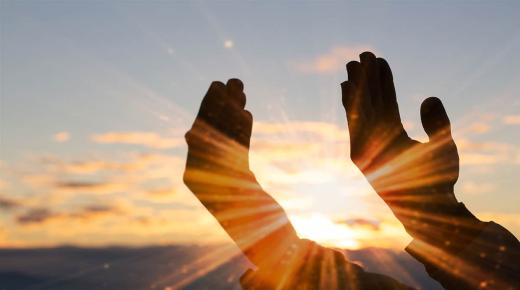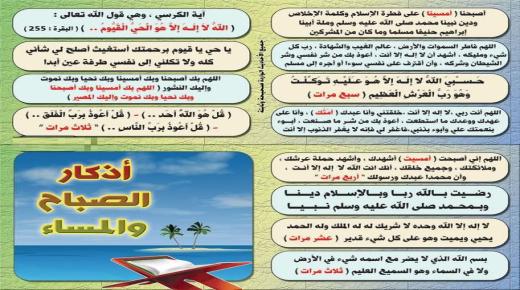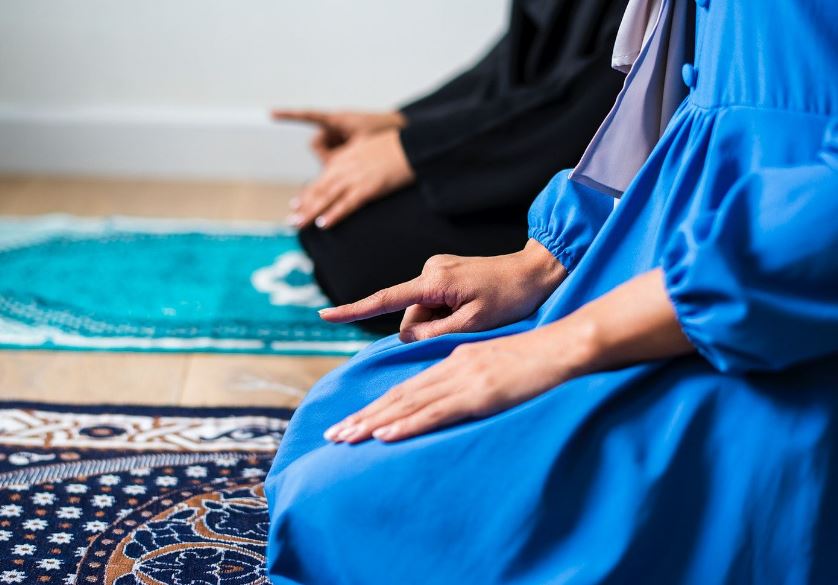
Prayer is one of the obligatory duties, and it is one of the five pillars of Islam, so it must be performed at its times instead of delaying it, just as saying remembrances after prayer has many benefits, as it helps in drawing closer to God and removes sadness from the heart and enlightens it and brings sustenance and many other things, so the Muslim must He is keen to recite dhikr, whether after prayer or at any other time.
What is the virtue of dhikr after prayer?
Every good deed or deed that a Muslim performs for God (Glory be to Him) will be rewarded for it, and this applies to remembrances after prayer, so repeating them in it is all good, as the righteous compete for God’s satisfaction and raise the ranks of the servant with his Lord in Heaven, just as the remembrance of God is in times of prosperity and not only adversity. It helps to maintain a good relationship between the servant and his Lord, in addition to the fact that the dhikr illuminates the face of the Muslim, relieves him of worry, and blesses his sustenance.
Remembrance after prayer
Repeating the correct remembrances after the obligatory prayer brings a lot of good to the Muslim and will be rewarded for it in this world and the Hereafter, except that it is not obligatory, and therefore the one who abandons it is not sinful, but it is desirable to repeat it because leaving it is a failure to follow the Sunnah of the Messenger (may God bless him and grant him peace).
Dhikr after the obligatory prayer
After performing the prayer and saluting from it, it is possible to chant remembrances after the prayer, and there are many remembrances mentioned in the honorable Prophet’s Sunnah, and we explain some of them as follows:
- Asking for forgiveness three times. It is proven from the Messenger (may God bless him and grant him peace) that after the obligatory prayer (Fajr, Dhuhr, Asr, Maghrib, and Isha), he used to say: “I ask God’s forgiveness, I ask God’s forgiveness, I ask God’s forgiveness, O God, You are peace, and from You is peace, Blessed be You.” O Possessor of majesty and honor".
- The monotheism of God (the Almighty), glorifying and venerating Him by chanting: “There is no god but God, He alone has no partner, His is the kingdom and His is the praise, and He is powerful over all things. .
- Repeating the supplication, “There is no god but God alone, He has no partner, His is the kingdom and His is the praise, and He is capable of everything. Except God, sincerely to Him is the religion, even if the unbelievers hate it.
- “Glory be to God, praise be to God, and God is great,” the Muslim repeats it thirty-three times after each of the five daily prayers.
- It is desirable to recite “Say, He is God, the One,” the Mu’awwidhatayn, and Ayat al-Kursi, after the salutation of each prayer.
- "Oh God, help me to mention you, thank you, and well worshipping you".
Remembrance after Fajr prayer
It was reported on the authority of the Messenger (may God bless him and grant him peace) that he used to sit after completing the Fajr prayer to repeat the dhikr, and the companions and followers followed him in that, because this brings much good and brings him closer to God (glory be to Him), and it is desirable for a Muslim to follow the Sunnah of the Prophet (may God bless him and grant him peace peace be upon him), and among the supplications that can be said after the salutation of the Fajr prayer:
- “There is no god but God alone, He has no partner, His is the kingdom and His is the praise, and He is capable of everything.” (repeated three times)
- "O Allah, I ask You for beneficial knowledge, and they had a good, and pursuant receptive". (Once)
- "O God spare me from hell". (seven times)
- “Oh God, you are my Lord, there is no god but You, You created me and I am Your servant, and I abide by Your covenant and promise as much as I can. I acknowledge Your grace and I acknowledge my sin, so forgive me, for no one forgives sins except You. I seek refuge in You from the evil of what I have done.” (Once)
- "Hallelujah and praise, the number of his creation, and the same satisfaction, and the weight of his throne, and his words outrigger".
Remembrance after the morning prayer
After the salutation of the morning or dawn prayer, the Muslim recites Ayat al-Kursi once, then recites (Say: He is Allah, the One) three times, and then recites the two exorcisms three times for each one, then repeats the remembrances after the prayer, which are:
- We have become and the kingdom belongs to God and praise be to God, there is no god but God alone, He has no partner, His is the kingdom and His is the praise, and He is capable of everything. My Lord, I seek refuge in You from laziness and bad old age, my Lord, I seek refuge in You from torment in the Fire and torment in the grave.” (Once)
- “I am satisfied with God as my Lord, with Islam as my religion, and with Muhammad, may God’s prayers and peace be upon him, as my Prophet.” (three times)
- Oh God, I am witnessing you, and the bearers of your throne, your angels and all your creation, that you are God, there is no god but you alone, you have no partner, and that Muhammad is your servant and your messenger. (four times)
- “Oh God, whatever blessing I or one of your creation has become, it is from you alone, you have no partner, so to you is praise and God is thanks.” (Once)
- “God suffices me, there is no god but He, in Him I trust, and He is the Lord of the Great Throne.” (seven times)
- “In the name of God, with whose name nothing harms on earth or in heaven, and He is the All-Hearing, the All-Knowing.” (three times)
- “We became upon the nature of Islam, upon the word of sincerity, upon the religion of our Prophet Muhammad, may God bless him and grant him peace, and upon the faith of our father Abraham, a Hanif, a Muslim, and he was not of the polytheists.” (Once)
- We have become and the kingdom belongs to God, Lord of the worlds. (Once)
What are the remembrances after the Duha prayer?
The Duha prayer is not one of the prayers imposed on the Muslim, but rather it is a Sunnah from the Messenger (may God bless him and grant him peace), meaning that whoever performs it will be rewarded for it, and whoever leaves it will have nothing and no sin on him, and there is a remembrance that is recommended to be repeated after completing this prayer, which is seeking forgiveness a hundred times, and that As reported on the authority of Aisha (may God be pleased with her), she said:
“The Messenger of God (may God bless him and grant him peace) performed the forenoon prayer, then said: O God, forgive me, and accept my repentance, for You are the Forgiving, the Most Merciful.” He even said it a hundred times.
Remembrance after Friday prayers
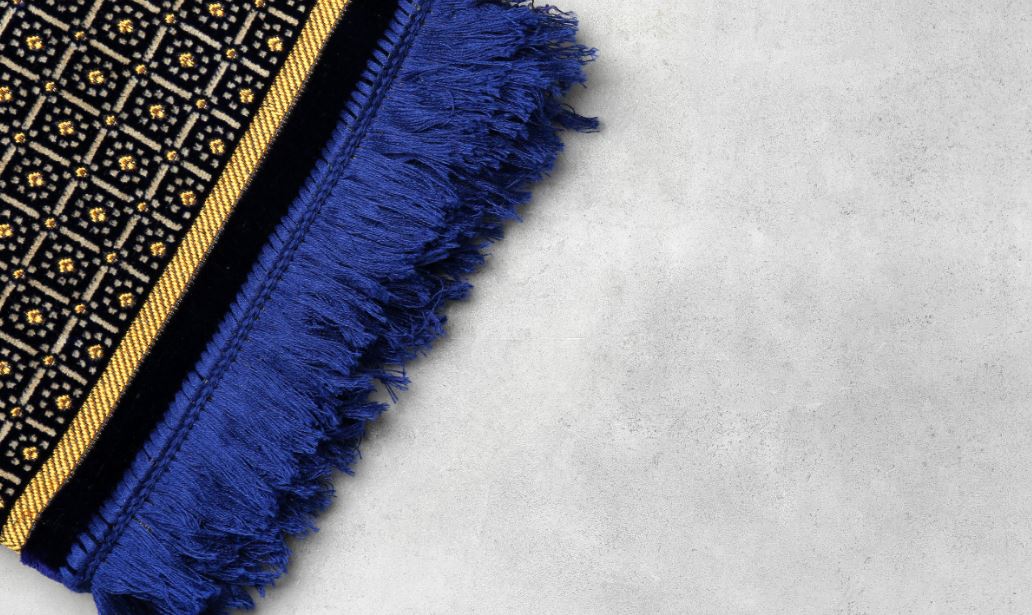
Friday is like a feast for Muslims, so it is desirable to abound in remembrance and supplication in it, but the Messenger (may God bless him and grant him peace) did not single him out for specific remembrances, and the remembrances that the Muslim repeats after the Friday prayer are the same remembrances that he repeats after the other prayers, by seeking forgiveness from God (swt). three times after the salutation of the prayer, then he says:
- O God, you are peace and from you is peace, blessed be you, O Possessor of Majesty and Honor, there is no god but God alone, he has no partner, his is the kingdom and his is the praise, and he is capable of everything Except God, sincerely to Him is the religion, even if the unbelievers hate it.
- Praise be to God thirty-three times, praise be to Him thirty-three times, and the Greatness thirty-three times.
- “There is no god but God alone, He has no partner, His is the kingdom and His is the praise, and He is capable of everything.” (one hundred times)
- Recite Surat Al-Ikhlas and Al-Mu'awwidhatayn, once.
Dhuhr prayer remembrance
The noon prayer is one of the five obligatory prayers for a Muslim. After saluting it, the aforementioned dhikr can be repeated under the title of dhikr after the obligatory prayer. Some supplications can also be repeated, such as:
- “O Allah, do not leave a sin of mine except that You forgive it, nor a worry except that You relieve it, and no disease except that You heal it, and no fault except that You cover it, and no sustenance except that You extend it, and no fear except that You secure it, and no misfortune except that You dispose of it, and there is no need that You are pleased with, and I have righteousness in it except that You fulfill it. O Most Merciful of the Merciful.”
- “O Allah, I seek refuge in You from cowardice and miserliness, and I seek refuge in You from being sent back to the worst age, and I seek refuge in You from the trials of this world, and I seek refuge in You from the torment of the grave.”
- “There is no god but God, the Great, the Forbearing, there is no god but God, Lord of the Great Throne, and praise be to God, Lord of the worlds.”
What are the remembrances after Asr prayer?
There is no specific dhikr related to the Asr prayer, as a Muslim can repeat the recommended dhikr after any obligatory prayer, and other supplications or dhikr after the prayer that can be said after the salutation of the Asr prayer are as follows:
- “O Allah, I ask You for ease after hardship, relief after distress, and prosperity after adversity.”
- “I ask forgiveness from God, who there is no god but He, the Living, the Sustainer, the Most Gracious, the Most Merciful, the Possessor of Majesty and Honor, and I ask Him to accept the repentance of a humiliated, submissive, poor, miserable servant seeking refuge, who does not possess for himself benefit or harm, neither death nor life nor resurrection.”
- “O Allah, I seek refuge in You from a soul that is not satisfied, from a heart that is not humbled, from knowledge that does not benefit, from a prayer that is not lifted, and from a supplication that is not heard.”
Remembrance after Maghrib prayer
There are many remembrances after Maghrib prayer, some of which can be mentioned as follows:
- Reciting Ayat al-Kursi once: “Allah, there is no god but He, the Living, the Sustainer. No year overtakes Him, and there is no sleep for Him. Whatever is in the heavens, and there is no one on earth who can intercede with Him except by His permission. He knows what is before them and what is behind them, and they do not encompass anything of His knowledge except as He wills. Expand His Throne.” the heavens and the earth, and their preservation tires Him not, and He is the Most High, the Great.”
- Reciting the end of Surat Al-Baqarah: “The Messenger believes in what was revealed to him from his Lord, and the believers all believe in God, His angels, His books, and His Messengers. We do not differentiate between any of His Messengers, and they said: We have heard and obeyed. Your forgiveness, our Lord, and to You is the destiny. If we forget or err, our Lord, and do not place a burden on us as You laid it on those before us, our Lord, and do not burden us with what we have no power with, and pardon us, and forgive us, and have mercy on us, You are our protector, so give us victory over the unbelieving people.
- Reciting Surat Al-Ikhlas and Al-Mu’awwidhatayn three times for each of them.
- Our evening and evening is the kingdom of God, and praise be to God, there is no god but God alone, He has no partner, His is the kingdom and His is the praise, and He is capable of everything. My Lord, I seek refuge in You from laziness and bad old age, my Lord, I seek refuge in You from torment in the Fire and torment in the grave.” (Once)
- “I am satisfied with God as my Lord, with Islam as my religion, and with Muhammad (may God bless him and grant him peace) as my Prophet.” (three times)
- “In the name of God, with whose name nothing harms on earth or in heaven, and He is the All-Hearing, the All-Knowing.” (three times)
- “O God, with you we have become, and with you we have become, and with you we live, and with you we die, and to you is the destiny.” (Once)
- “We have become upon the nature of Islam, upon the word of sincerity, upon the religion of our Prophet Muhammad (may God bless him and grant him peace), and upon the religion of our father Abraham, Hanif, a Muslim, and he was not of the polytheists.” (Once)
- “Oh God, you are my Lord, there is no god but You, I rely on You and You are the Lord of the Noble Throne. Whatever God wills is, and what He does not will is not. Knowing, O Allah, I seek refuge in You from the evil of myself and from the evil of every animal whose forelock You take, my Lord is on a straight path. (Once)
- “Glory be to God and praise be to Him” (one hundred times).
What are the benefits of dhikr after prayer?
Remembrances after prayer have many benefits, as they benefit the Muslim in this world and the hereafter, and some of their benefits can be presented as follows:
- Preserving and protecting the Muslim from the whispers of Satan and the evils of the world.
- Opening the doors of goodness and livelihood and facilitating things in the world.
- Increase the sense of reassurance, tranquility and calmness.
- Getting closer to God (swt) by remembrance and supplication, and this is one of the recommended acts of worship for which a servant will be rewarded.
- Erasing sins and earning good deeds, because in these remembrances there is seeking forgiveness from God (the Mighty and Sublime), glorifying Him, venerating Him and praising Him for His blessings.
